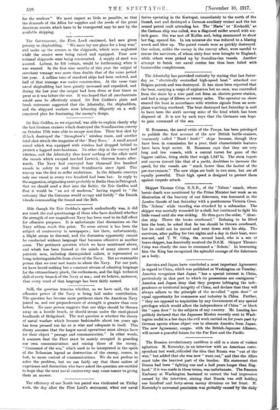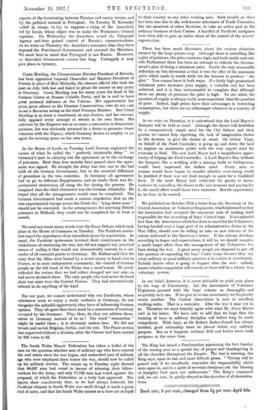The Russian revolutionary cauldron ie still in a state of
violent agitation. M. Kereneky, in an interview with an American corre- spondent last week, ridiculed the idea that Russia was "out of the war," but added that she was now " worn out," and that the Allies must take the heaviest part of the burden. His statement that Russia had been " fighting one and a half years longer than Eng- land," if it was made in those terms, was unfortunate.. The RUaliafl• Embassy at Washington hastened to correct the bad impression caused by the interview, stating that Roasts was still holding one hundred and forty-seven enemy divisions on her front, M. Kerenaky's unwonted pessimism was probably caused by-the daily'
reports of the fraternizing between Russian and enemy troops, and by the political turmoil in Petrograd. On Tuesday M. Kerensky called in troops to try to suppress a rising of the Anarchists led by Lenin, whose object was to make the Workmen's Council supreme. On Wednesday the Anarchists seized the Telegraph Agency and thus gained control of Russia's communications. Ae we write on Thursday the Anarchists announce that they have deposed the Provisional Government and arrested the Minister& We must bear in mind that Petrograd is not Runda Moreover, an Anarchist Government cannot last long. Unhappily it may give place to tyranny.



































 Previous page
Previous page